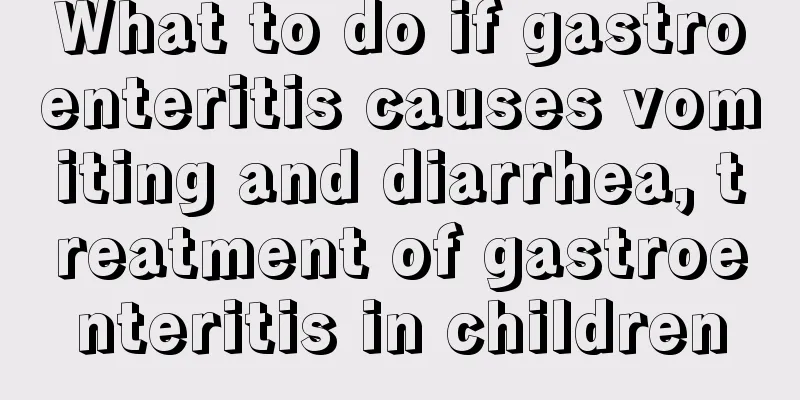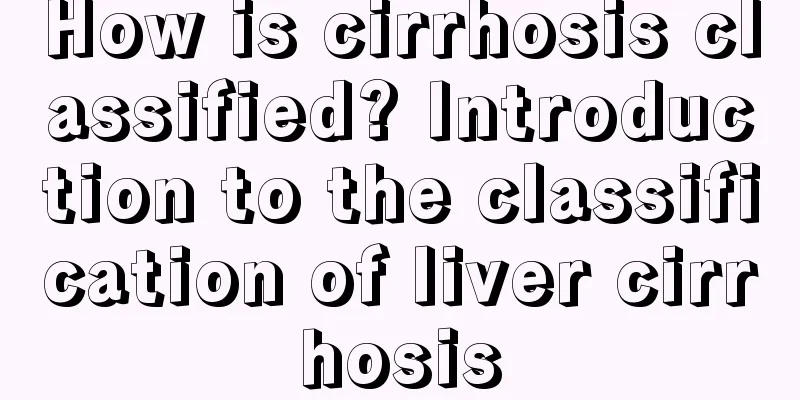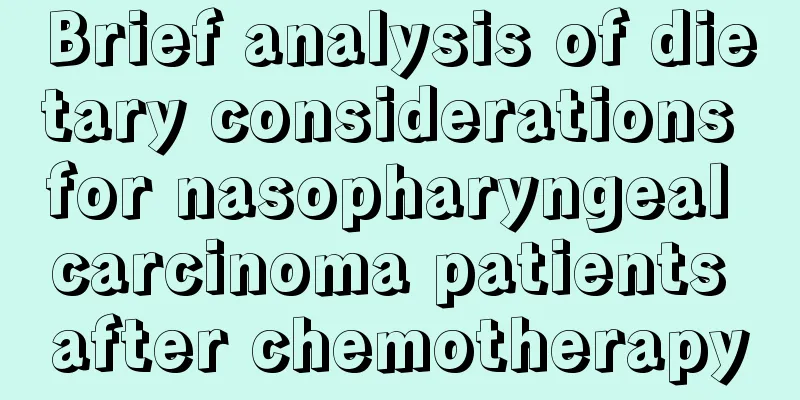What to do if gastroenteritis causes vomiting and diarrhea, treatment of gastroenteritis in children

|
Many people have experienced gastroenteritis, which is really painful, with vomiting and diarrhea. If a child has gastroenteritis, parents will be even more anxious. To treat pediatric gastroenteritis, you need to understand the cause. Many times it is caused by indigestion. Treat it in time and pay attention to your daily diet. 1. The treatment of pediatric gastroenteritis is mainly etiological treatment and symptomatic treatment, that is, what causes acute gastroenteritis, and try to find out and eliminate the root cause in time. Whatever symptoms the child shows, try to eliminate these symptoms that are harmful to the body. 2. If it is caused by indigestion, you can adjust your diet and take lactase, yeast tablets, etc.; if it is caused by other diseases in the body, you can choose antibiotics and use them under the guidance of a doctor; if it is caused by other diseases in the body, actively treat the disease; if it is caused by unreasonable use of antibiotics, you need to consult a doctor to rationalize the use of antibiotics. 3. If a child loses too much water due to vomiting or diarrhea, he/she should be replenished with water and electrolytes in time. If he/she has a high fever, use physical or drug cooling methods to reduce the temperature. If he/she is deficient in potassium, he/she should be supplemented with potassium, and if he/she is deficient in calcium, he/she should be supplemented with calcium. If he/she has metabolic acidosis or shock, he/she should be sent to the hospital for emergency treatment in time. 4. Clinical manifestations: If acute gastroenteritis causes mild diarrhea, the patient is generally in good condition, with less than 10 bowel movements a day, which are yellow or yellow-green in color, with a small amount of mucus or white soap blocks, and not much feces. Sometimes the stool is "egg drop soup-like". Acute gastroenteritis can also cause severe diarrhea, with bowel movements several to dozens of times a day. Large amounts of watery stools, small amounts of mucus, nausea and vomiting, loss of appetite, and sometimes vomiting of coffee-like substances. If hypokalemia occurs, there may be abdominal distension and symptoms of systemic poisoning; such as irregular low or high fever, irritability and then lack of energy, confusion, and even coma. 5. Prevention: Acute gastroenteritis in children is very easy to prevent. As long as parents understand the cause of the disease, adjust their children's diet appropriately, pay attention to climate changes, and prevent infection, they can prevent their children from getting the disease. |
<<: What is the diet for atherosclerosis
>>: What is femoral artery atherosclerosis
Recommend
Can late-stage osteosarcoma be cured?
Basically, when cancer reaches the late stage, th...
Can I shave my lip hair?
Generally, men's beards are relatively hard, ...
Why does my mouth bleed when I wake up from sleep?
There are many reasons for oral bleeding. General...
How long can you live with pleural effusion due to breast cancer
How long can a breast cancer patient with pleural...
Can I eat sweet potatoes during menstruation?
The menstrual period is a relatively important pe...
Will renal hamartoma cause back pain? 3 symptoms of renal hamartoma make you feel uncomfortable
Renal hamartoma is a common clinical disease. Aft...
The most common early symptoms of cervical cancer
There are many diseases that may occur in the fem...
What is the reason for pain around the belly button
Pain around the navel is a relatively obvious sym...
What are the causes of cervical precancerous lesions? What should we do about cervical precancerous lesions?
Cervical precancerous lesions are a health killer...
Can you eat garlic that has teeth?
Remember not to use sprouted potatoes, because wh...
The fastest trick to peel kiwi fruit
Kiwi fruit tastes very good and is refreshing to ...
Prevention of prostate cancer
When men reach the age of 50, they should pay spe...
Tips on how to clean suede shoes
Autumn and winter are the best seasons to wear su...
Why does general anesthesia cause death_Why does general anesthesia cause death
General anesthesia is a type of anesthesia during...
Household solar water heater
With the decrease of non-renewable energy, people...









